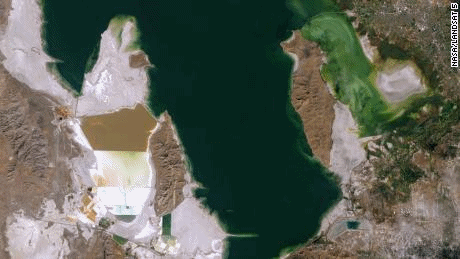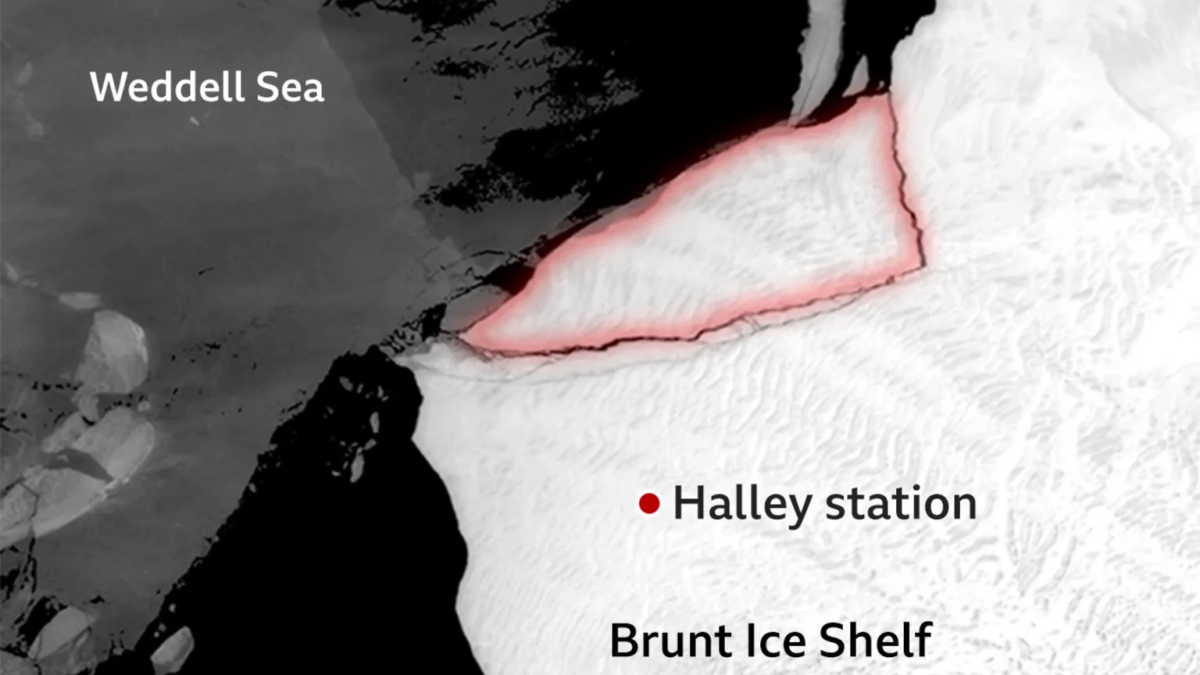Record rainfall in Europe after record heatwave – At least 42 dead and dozens missing in Germany floods – “We have never seen such a disaster. It’s really devastating.”
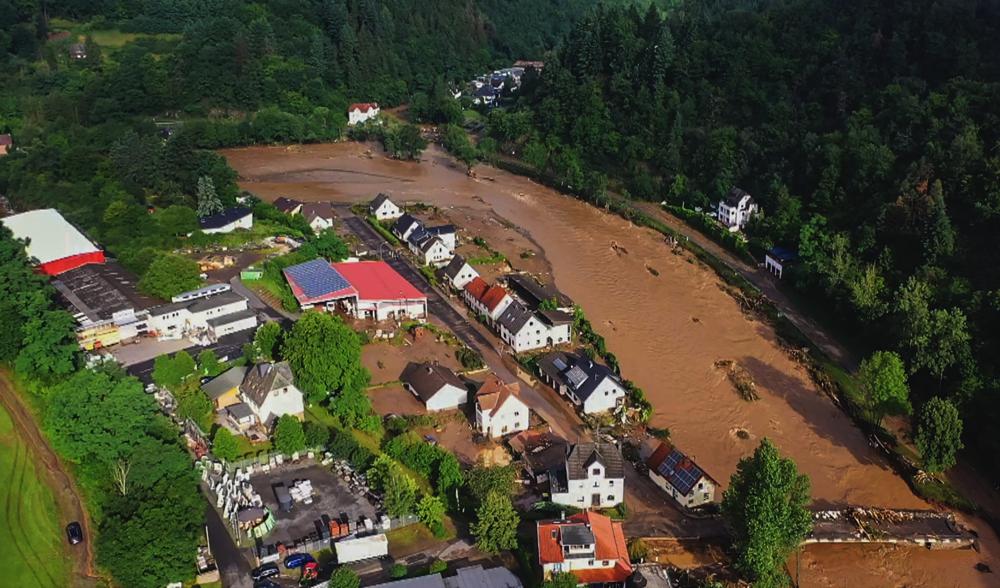
15 July 2021 (BBC News) – At least 42 people have died in western Germany and many more are missing following severe floods, police say.
The worst of the flooding has been in the states of Rhineland-Palatinate and North Rhine-Westphalia, where buildings and cars have been washed away.
At least six others have died in neighbouring Belgium, and the city of Liège has urged all residents to leave.
It follows record rainfall in parts of western Europe that has caused major rivers to burst their banks.
The Netherlands has also been badly hit, with flooding rivers damaging many houses in the southern province of Limburg. A number of care homes have also had to be evacuated.
Malu Dreyer, chief of Germany’s Rhineland-Palatinate state, described the flooding as a “catastrophe”.
“There are dead, missing and many people still in danger,” she said. “All of our emergency services are in action round the clock and risking their own lives.” [more]
Germany floods: At least 42 dead and dozens missing after record rain
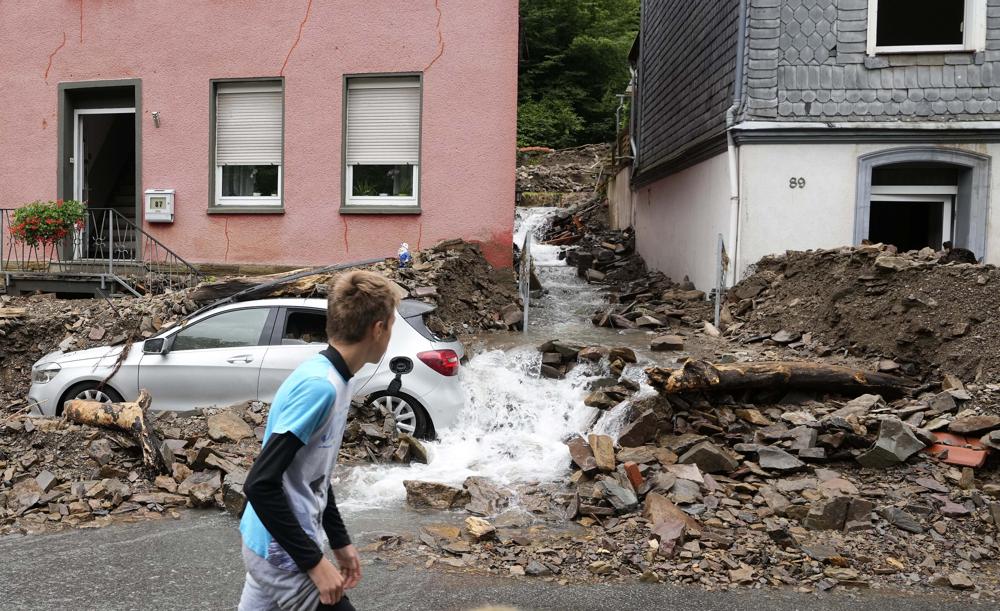
More than 30 dead, dozens missing in heavy Europe floods
BERLIN, 15 July 2021 (AP) – More than 30 people have died and dozens of people were missing Thursday in Germany and neighboring Belgium after heavy flooding turned streams and streets into raging torrents, sweeping away cars and causing buildings to collapse.
Storms across parts of western Europe in recent days caused rivers and reservoirs to burst their banks, resulting in several flash floods overnight as rain-soaked soil failed to absorb any more water.
Authorities in the western German region of Euskirchen said eight deaths had been reported there in connection with the floods. Rescue operations were hampered by the fact that phone and internet connections were down in parts of the county, which is southwest of Cologne.
Officials said 18 people had died in Ahrweiler county, south of Euskirchen. Up to 70 people were reported missing after several houses collapsed overnight in the village of Schuld in the Eifel, a volcanic region of rolling hills and small valleys southwest of Cologne.
Dozens more were trapped on the roofs of their houses awaiting rescue. Authorities used inflatable boats and helicopters, and the German army deployed 200 soldiers to assist in the rescue operation.
“There are people dead, there are people missing, there are many who are still in danger,” the governor of Rhineland-Palatinate state, Malu Dreyer, told the regional parliament. “We have never seen such a disaster. It’s really devastating.”
German Chancellor Angela Merkel said she was distraught by the news of the floods. “My sympathy goes to the relatives and of the dead and missing,” she said during a trip to Washington.
Across the border in Belgium, the Vesdre river broke its banks and sent masses of water churning through the streets of Pepinster, close to Liege, its destructive power bringing down some buildings. […]
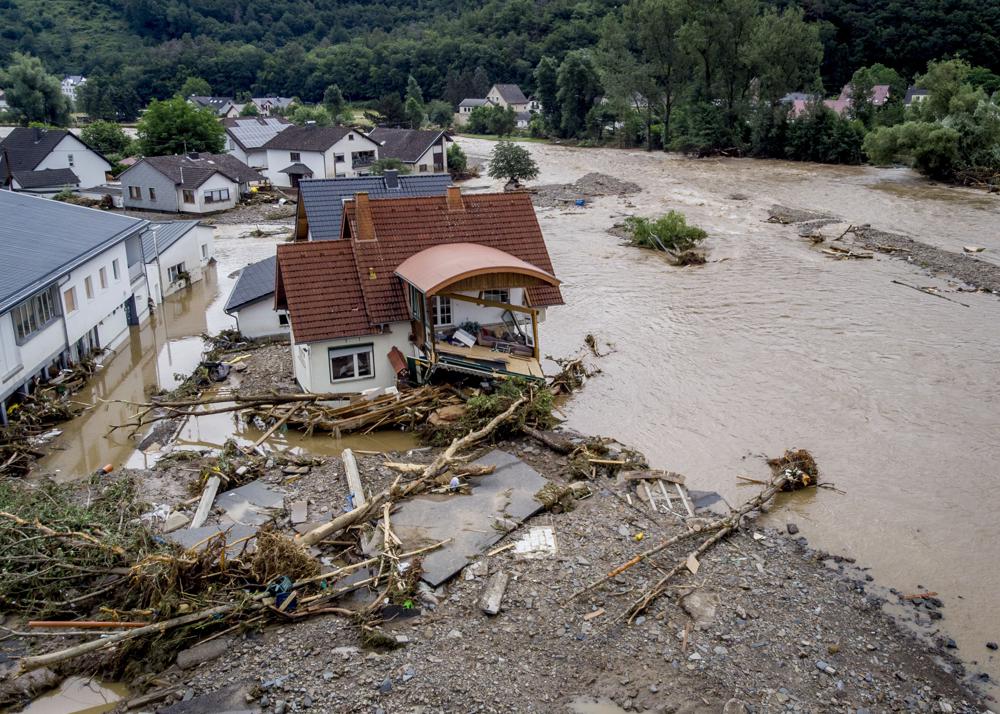
EU Commission President Ursula von der Leyen pledged to help those affected.
“My thoughts are with the families of the victims of the devastating floods in Belgium, Germany, Luxembourg and the Netherlands and those who have lost their homes,” she tweeted. “The EU is ready to help.”
The full extent of the damage across the region was still unclear after many villages were cut off by floodwater and landslides that made roads impassable. Videos posted on social media showed cars floating down streets and houses partly collapsed in some places.
Many of the dead were only discovered after floodwaters began to recede again. Police said four people died in separate incidents after their basements were flooded in Cologne, Kamen, and Wuppertal, where authorities warned that a dam threatened to burst. […]
Unusually intense rains have also inundated a swath of northeast France this week, downing trees and forcing the closure of dozens of roads. A train route to Luxembourg was disrupted, and firefighters evacuated dozens of people from homes near the Luxembourg and German border and in the Marne region, according to local broadcaster France Bleu.
The equivalent of two months of rain has fallen on some areas in the last one or two days, according to the French national weather service. With the ground already saturated, the service forecast more downpours Thursday and issued flood warnings for ten regions.
Meanwhile, high temperatures of 30 degrees Celsius (86 degrees Fahrenheit) or higher were expected Thursday in parts of northern Europe.
The night between Wednesday and Thursday was the hottest in history, the Finnish weather service company Foreca said Thursday with the mercury reaching 24.2 Celsius degrees (75.6 degrees Fahrenheit).
Greta Thunberg, the climate activist, tweeted that the extreme weather of recent days should not be regarded as “the new normal.”
“We’re at the very beginning of a climate and ecological emergency, and extreme weather events will only become more and more frequent,” she wrote. [more]
